- Home
- Alex Irvine
Black Lagoon
Black Lagoon Read online
Black Lagoon
A Short Story by Alex Irvine
From The Dream Curator and Other Stories
Black Lagoon
© 1998 by Alex Irvine.
All Rights Reserved.
Kindle Edition
Download Other Kindle Books By Alex Irvine:
Novellas
Mystery Hill
Short Stories
Green River Chantey
The Dream Curator and Other Stories
The Dream Curator Collection Includes:
Black Lagoon
This Thing Of Darkness I Acknowledge Mine
The Word He Was Looking For Was Hello
Eagleburger’s Lawn
Homosexuals Damned, Film At 11
Remotest Mansions Of The Blood
Shad’s Mess
Shambhala
Seventh Fall
The Truth About Ninjas
The Dream Curator
It’s not déjà vu when you really have been there before, is it? Still feels that way. Like life puts you through dress rehearsals, or like there’s a series of little symmetries that arise and are broken. Pocket universes of time, born from and dying into each other, life as a series of little Big Bangs. I read a lot when I was in prison. Maybe another way to put it is that if you could step back and look at your life across time, what you’d see is a fractal: the broad arc of your existence as a pattern that ramifies through smaller bits of time, replicating itself on ever-tinier scales. The pattern I’m trying to talk about has to do with me, baseball, murder, and the things that live in dark waters.
It started when Ricky Twombly, who was supposed to be coming by with a vanload of Betamaxes, instead got ideas of his own and arrived at the Fortress of Solitude with the van’s springs groaning under the weight of what must have been two tons of unrefined copper, piled up in weird anemone-like tangles that shone red in the van’s overhead light. I’m not shitting you. Copper.
Now this was already in the twilight of the Betamax, in 1984, but we had a deal set up with this gang of underground filmmakers (I think you know what I mean), and they had their own way of doing things. So did we; the Betamaxes were coming from somewhere up north, maybe Canada even, after a complicated series of maneuvers involving the Soo Locks and a whole lot of greasing of Indian palms. That wasn’t my area. I had, for reasons of my own, connections with the filmmakers (not of the nature you might be imagining), so I was there to take the load on to its final destination and ensure that the transaction was completed to everyone’s satisfaction.
So the van comes low-riding in, and Ricky hops out with the happiest grin I’ve ever seen on his idiot face. “Boys,” he said, “this is some hot shit here.”
Which was a self-evident kind of remark, taken the way you would naturally take it, but Ricky meant something different. Looking back on it, I’m not surprised. Ricky was the kind of guy for whom something like a heap of unrefined copper had an irresistible aura of mystery. He loved westerns and stories about explorers—this is a man thirty-seven years old I’m talking about—and was convinced that he’d been born a century too late. The presence of natural resources had a way of kindling his inner pioneer.
Mine, too, at least a little. I confess that when I was watching the hearty gleam of that copper in the back of the van, I thought that the underground filmmakers could go to hell. We had something much greater than a stack of Betamaxes.
Unfortunately Billy Hooper disagreed, Billy Hooper under whose iron and irascible thumb we all labored, Billy Hooper who was utterly without any sense of the romantic or beautiful.
“What the fuck?” Billy said. The three of us were standing at the back of the van. Billy had one foot up on the bumper.
“Copper, Billy,” said Ricky.
“I didn’t send you up there for copper. Where’s the Betamaxes?”
“Shit, Billy, I got there and they said I should check out the copper. I mean, look at it.” Ricky was already pleading. I don’t think he was afraid for himself; if I knew Ricky, and I did, he was afraid of losing the copper, of never having the opportunity to repeat the seven hours or so he’d just spent all alone with it coming down I-75. I imagined him gazing at it in the rear-view mirror.
I think, in fact, that I was looking at the rear-view mirror, seeing a small rectangle of dumpy Detroit warehouse with parts of three human forms in the middle ground and a great tangle of threads and veins and fingers of copper dominating the foreground, when Billy lost his temper and shot Ricky Twombly in the head.
“Jesus, Billy,” I said.
“Fuckin’ retard,” Billy said. I wasn’t sure whether he meant me or Ricky until he said, “The fuck am I supposed to do with copper? Maybe we should start making fucking saltwater taffy, too.”
He had a point there—Billy’s skills did not include the refining of copper or managing of tourist enterprises, and anyway you never heard the words Detroit and tourist in the same sentence in 1984—but I was privately of the opinion that he could have gotten the message through to Ricky without deadly force.
“Jay. Am I wrong?” Billy asked me. “Was I not supposed to get a hundred Betamaxes?”
“You were,” I said.
“Fuckin’ retard,” Billy said again. I wondered if anyone had happened to be wandering down the street outside to hear the gunshot. The Fortress of Solitude was along Southern between Lonyo and Livernois, far enough from human habitation that you could skin a hundred cats simultaneously without anyone knowing, but it always pays to wonder.
So who got the lonely job of driving Ricky Twombly’s mortal remains, along with two tons of copper, down to the river, where he could join his ancestors in the ignoble clan of small-time Detroit hoods who made the mistake of thinking?
“Jay,” Billy said. “Get rid of the van.”
If he hadn’t just killed Ricky, I might have resisted. I might have pointed out that it was driving a van with a dead guy in the back that got me sent on a fourteen-year vacation to Jackson. I might have pointed out that if I had not, on that previous occasion, been disposing of a body for Billy Hooper, I might have been able to see Mickey Lolich vanquish the fearsome Bob Gibson in Game Seven of the 1968 World Series. The tickets are still in a bureau drawer in my bedroom, unused because on that particular day I was in the Wayne County jail awaiting trial instead of enjoying the charms of St. Louis. I might have said to Billy Hooper that I was a guy who learned from his mistakes…although if that were true, I would have gone into a different line of work after getting paroled. Still, I like to think it.
Since Billy had just killed Ricky Twombly, though, all I could make myself say was, “C’mon, Billy, why waste all this copper?” Which might come across as a failure to stand up for myself. That’s a character flaw of which I have often been accused.
“If I wanted copper, I’d be a fucking Indian selling beads to tourists,” Billy said. “Take the van and get rid of it. And not around here. We’ve got to make it disappear. I want deep water, and I want it out of Detroit.”
This is where I figured out that Billy was actually scared of the Indians. He must have been, if he was provoked to such uncharacteristic caution. I filed the impression away, curious as to the reason for his unease but knowing Billy well enough to assume that the reason would present itself sooner rather than later without my asking. I also figured out that I should never have opened my mouth, because if I’d just said okay in the first place, I could have rolled the van off a dock into the Rouge and forgotten about the whole thing.
Like I said, I’d done it before. But look where it had gotten me.
“Come on, Billy,” I said. “What’s John going to do, send a bearwalker after you?”
John being John LaCroix, the brains of a Chippewa gang that sm
uggled various items from the Canadian Soo to the American side. I’d met John before, on other jobs. He liked to say that Detroit was his town too, because it was what the Chippewa called their Third Stopping Place on their migration up the St. Lawrence, however many thousand years ago. By the time Cadillac got there, Detroit was Pottowatomi territory, but you couldn’t tell that to John LaCroix. I’d once spent all night with John in the cab of a TopKick driving cigarettes from the Soo down to a Syrian who had convenience stores in Highland Park. John spent the whole night musing about how he’d like to have a real piece of the trade in Detroit, but he hadn’t yet found the right guy to work with. “You and me should go in together,” he said at one point, and laughed. Always laughing, John LaCroix. Always bullshitting, too. By the end of the drive, he had me believing in the whole gamut of Chippewa folklore: bearwalkers, Mishipeshu, manitous, the whole works.
And I wasn’t a superstitious guy. Billy was. He’d grown up in the UP, near Escanaba, and he thought every Indian was some kind of medicine man. So I should have shut up after the bearwalker comment, but I didn’t. Billy owed me. I’d taken the fall for him in 1968, and he owed me.
“We should at least keep the copper,” I said.
Billy looked at me the way he’d looked at Ricky five minutes earlier. “When you get back,” he said, “we’re going to fix those fucking Indians.”
2
Thus I found myself driving way the hell out Telegraph Road into the boonies, because Oakland County—you may not know this—is home to some of the state’s deepest lakes. When I was a kid I had the geography bug, and I can still tell you, in order, the depths of the Great Lakes and the ten deepest inland lakes. Interesting trivia: Torch Lake, up near Traverse City, is deeper than Lake Erie. Cleaner, too. But I wasn’t going all the way up to Traverse, because number seven on the list of ten inland lakes was Oakland County’s own Cass Lake, with a maximum depth of 123 feet. I figured that would be enough to hide a van, and poor old Ricky Twombly. And anyway, if I was going to drive all the way up to Torch Lake, I figured I might as well keep on driving up to the Soo so I could present the Indians with Ricky’s body and say, see what you did?
The way things overlay each other is weird. There I was, driving the van that Ricky had driven, thinking about copper—only I was driving Ricky too. What next? I wondered. Maybe someone would kill me and throw me in the back, and someone would kill them, and the van would become a Dodge Flying Dutchman, doomed to roam the back roads of Michigan forever with its cursed treasure clinking and shifting in the back.
This is where your mind goes when you drive around in the boonies at night, especially if you read too many books when you were a kid. I snapped myself out of it and got a room in a little motel near Orchard Lake. It was March in Michigan, raw wind in my eyes and dirty snow huddling on the north side of the building where I backed the van in so nobody could peek in the back windows and spot Ricky resting in peace on his copper bier. On the room television, just after Letterman, Al Ackerman came on Channel 4 and said of the Tigers, “Bless you, boys. This is the year.”
The Tigers were about to break camp and come north. They had gone something like 8-17 in spring training. I wasn’t convinced this was the year, and something inside me didn’t want 1984 to be the year, because that would make it a little too much like 1968, when I had also driven around with a body in a van. It hit me that I was forty-six years old, not gainfully employed, a paroled felon committing another felony…in short, dumbly retracing a pattern that I had known was a bad idea the first time around. And the reception on the TV was for shit anyway.
I cursed myself for a fool, and I cursed Billy Hooper for a trigger-happy psycho, and I decided right then and there that I was going to break this symmetry before fate had a chance to do it for me. For once I really was going to learn from a mistake, and the lesson was going to be this: do things differently, even if in this case differently meant ‘not the way Billy wanted’ rather than ‘in a different manner than the last time I attempted to dispose of a body.’ This one thing, and I was out. I didn’t care why Billy was worried about the Indians, or how he would explain to the filmmakers his failure to produce a hundred Betamaxes. Billy, in short, could go fuck himself.
3
An hour or so later, I was down along the riverfront, the RenCen looming over me and a strange sulfuric smell coming from somewhere in the direction of Lake St. Clair. It’s not that hard to find a place in this city where you can get close enough to the river to put a van in gear, jump out, and watch it roll off the end of a pier. I didn’t like the idea of it that night, though, under a full moon and with Grosse Pointers tooling up and down the river in their boats, goggling like anthropologists at the darkened monolith of the city their parents had fled. I tried a couple of the old reliable places behind the railroad tracks off Atwater, and every time I was about to do it I got a prickle on the back of my neck like there was a cop just waiting for me to jump out.
Then, in a moment of inspiration that should be the envy of any man who has ever had to dispose of a van full of copper and Ricky Twombly, I thought of the Black Lagoon. If I dumped the van there, nobody would dare go in the water and pull it out. The Black Lagoon was so toxic that even the Vietnamese wouldn’t fish there. It was perfect.
It was also right next to McLouth Steel, but on a night like this I didn’t think anybody would be out even if McLouth was running a third shift. So it was off down Jefferson, through the dumpy downriver towns to Trenton. Just south of McLouth was a park, which tells you all you need to know about Detroit. Only here would you have a park between McLouth steel and the Black Lagoon.
Ricky Twombly started moving when I was maybe ten minutes from the turnoff.
At first I thought I’d just hit a bump and got the copper shifting and resettling. Then Ricky kicked one of the wheel wells. Then he kicked it again. Then he made a kind of gurgling noise in his throat.
“Ah shit, Ricky, don’t tell me,” I said. I pulled off Jefferson into the parking lot of a closed-down carpet and tile store. In the dome light’s glow I could see Ricky’s feet twitching. One of his eyes was open, the other half-lidded and sunk into its socket as a result of the bullet Billy had put into his skull. There was a hole just under his left cheekbone. Blood gleamed on the copper ore and soaked the collar and left shoulder of his jacket, which was one of those Members Only jobs that I had once told someone to shoot me if I ever wore. There’s another of those strange little symmetries.
Ricky groaned and bit his tongue. A tremor passed through his left arm, then a stronger spasm that dug his hand into the copper, tearing the skin from his knuckles. I could almost see the parts of his brain shorting out.
It was starting to spit snow outside. I rammed the van back into gear and drove the rest of the way to the park. On my left, the furnaces of McLouth vomited smoke over the moon; ahead of me the scrubby grass near the fence between the steelworks and the park gave way to the poisoned stillness of the Black Lagoon. I remember a swingset.
And behind me, Ricky Twombly scratched and scraped over the copper he’d given his life for. Some of the sharper pieces of it were actually stuck into him, as if he’d grown them.
If I’d thought there was any way he might live, I swear to God that I would have turned around and driven to the nearest hospital. He wouldn’t, though; I’d seen enough people shot in the head to know. So I bounced along the fence until the shoreline was maybe fifty yards away, and then I reached into the back for a biggish piece of copper. Holding the brake pedal down, I jammed the copper under the dash, wedging the accelerator to the floor. The van redlined, and I dove out as it surged out into the Black Lagoon. My feet got tangled when I hit the ground, and I felt something pop in my right ankle. The van was going maybe thirty miles an hour when it hit the water, and even though the engine quit almost immediately the inertia of all that copper kept it going until it was far enough out to disappear, back first and tailing around to the left in the eddy of the river’s cu
rrent. The last thing I saw of it was the faint glow of the dome light, and what I could have sworn was the face of Ricky Twombly floating up against the inside of the windshield.
4
I didn’t want to call a cab when I was still anywhere near Trenton, so I walked for miles back up Jefferson, my ankle throbbing and the river on my right flowing toward the Black Lagoon. About sunrise I turned away from the river and headed into Dearborn, where I lucked into a cab and took it all the way into Lafayette Square. I ate breakfast and then called Billy from a pay phone.
“You do it?” he said.
“Yeah,” I said.
He asked where, and I asked him did he really want to know, and he started complaining because the Tigers had traded Glenn Wilson and John Wockenfuss for Dave Bergman and Willie Hernandez. Billy loved Johnny Wockenfuss. I scratched mud from the elbows of my coat and waited for his rant against Sparky Anderson to subside. About the fifth time he said, “What the fuck?” I decided to get him back on track.
“So what do we do about the Betamaxes?” I asked.
“I already called whatsisname, Johnny fucking Two Feathers or whatever,” Billy said. “I asked him what kind of person he was, taking advantage of a retard like Ricky.”
Which, coming from a man of Billy Hooper’s moral fiber, is the kind of comment that starts knife fights.
“So what did he say?” I asked.
“This fucking redskin, he has the nerve to ask for the other half of his money.”
Aha, I thought. So that’s Billy’s problem.
“Billy, I don’t want to say I told you so, but if you had the copper, you could give it back and get the Betamaxes, you know? Back to square one.”
“Are you a businessman?” Billy snapped. “When someone tries to cheat you, you don’t just pretend it didn’t happen. Get back here. We’re meeting with the Indians tonight.”

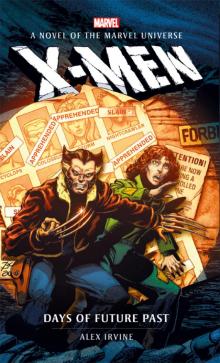 Marvel Novels--X-Men
Marvel Novels--X-Men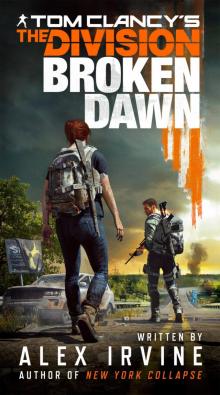 Tom Clancy's the Division
Tom Clancy's the Division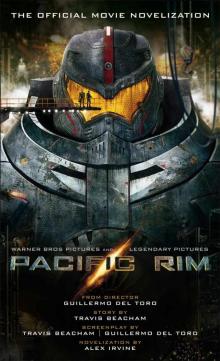 Pacific Rim: The Official Movie Novelization
Pacific Rim: The Official Movie Novelization Anthropocene Rag
Anthropocene Rag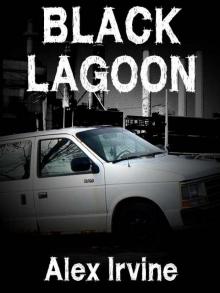 Black Lagoon
Black Lagoon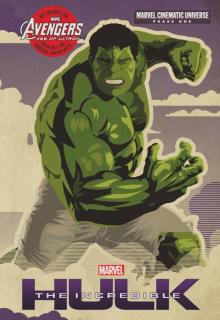 Phase One: The Incredible Hulk
Phase One: The Incredible Hulk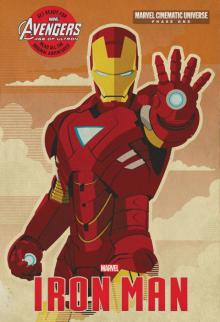 Phase One: Iron Man
Phase One: Iron Man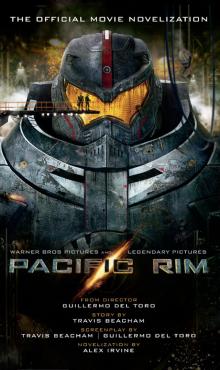 Pacific Rim
Pacific Rim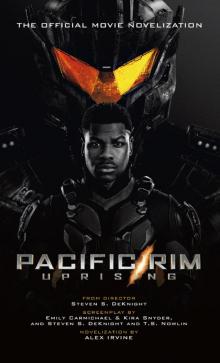 Pacific Rim Uprising--Official Movie Novelization
Pacific Rim Uprising--Official Movie Novelization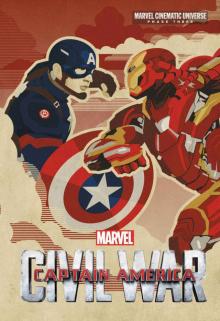 Phase Three: Marvel's Captain America: Civil War
Phase Three: Marvel's Captain America: Civil War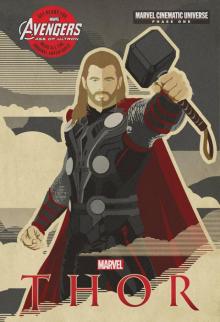 Phase One: Thor
Phase One: Thor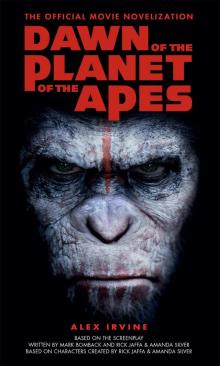 Dawn of the Planet of the Apes: The Official Movie Novelization
Dawn of the Planet of the Apes: The Official Movie Novelization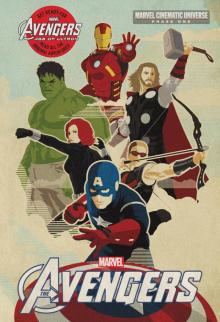 Phase One: Marvel's The Avengers
Phase One: Marvel's The Avengers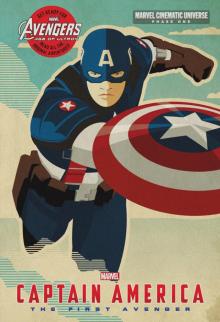 Phase One: Captain America
Phase One: Captain America Exiles
Exiles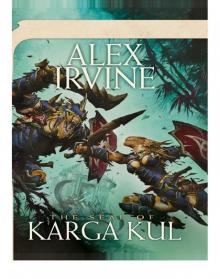 The Seal of Karga Kul: A Dungeons & Dragons Novel
The Seal of Karga Kul: A Dungeons & Dragons Novel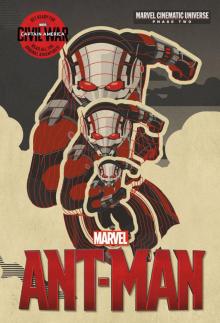 Marvel's Ant-Man - Phase Two
Marvel's Ant-Man - Phase Two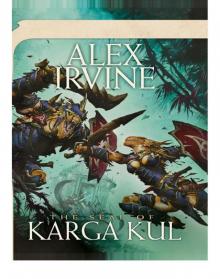 The seal of Karga Kul (dungeons and dragons)
The seal of Karga Kul (dungeons and dragons) Mare Ultima
Mare Ultima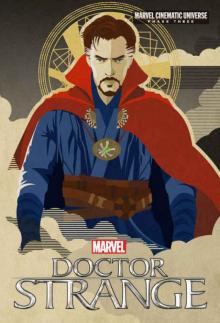 Phase Three: MARVEL's Doctor Strange
Phase Three: MARVEL's Doctor Strange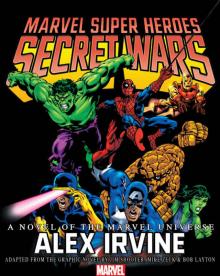 MARVEL SUPER HEROES SECRET WARS
MARVEL SUPER HEROES SECRET WARS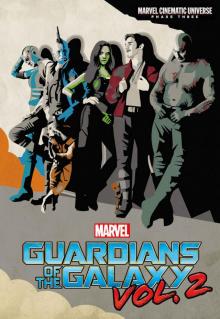 Phase Three: MARVEL's Guardians of the Galaxy Vol. 2
Phase Three: MARVEL's Guardians of the Galaxy Vol. 2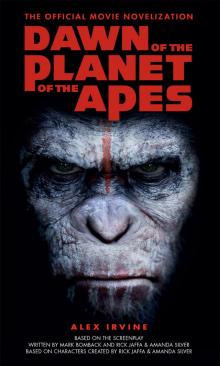 Dawn of the Planet of the Apes
Dawn of the Planet of the Apes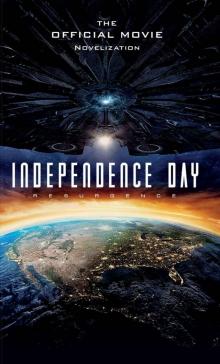 Independence Day: Resurgence: The Official Movie Novelization
Independence Day: Resurgence: The Official Movie Novelization